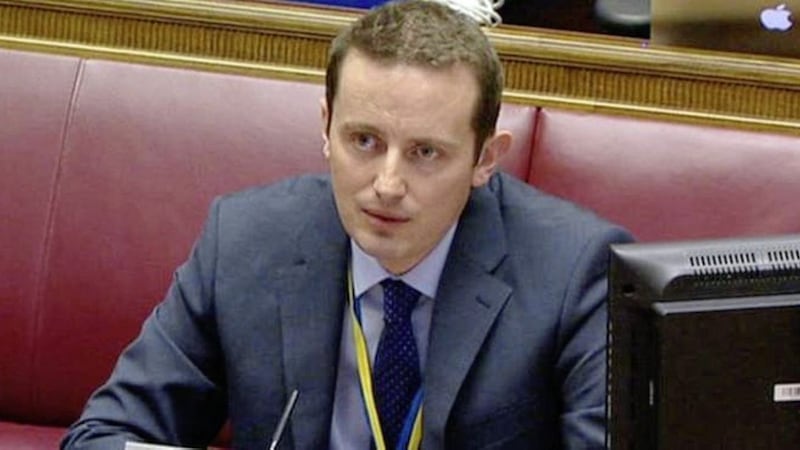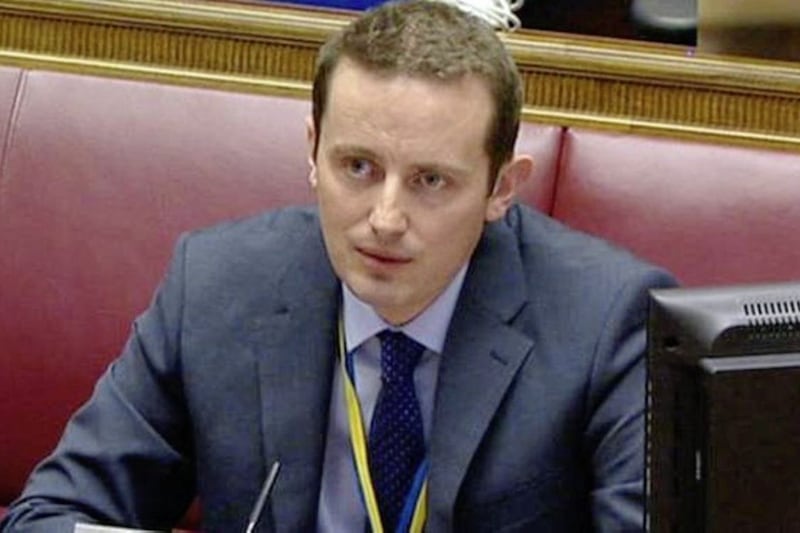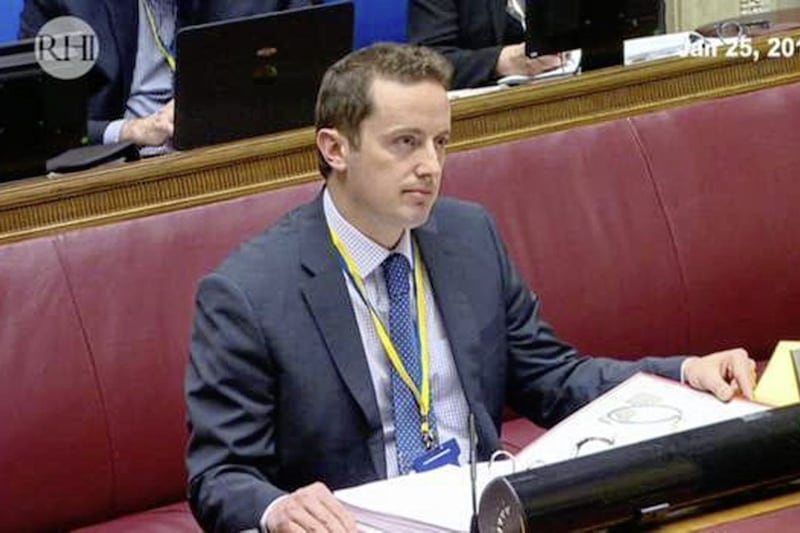AN economist who assessed the Renewable Heat Incentive (RHI) scheme was only given 48 hours to sign off on whether the project was value for money.
The public inquiry into the disastrous scheme heard yesterday that Sam Connolly, who worked as an economist at the Department for Enterprise, Trade and Investment (Deti), was "under incredible time pressure".
During the second day of Mr Connolly's evidence to the inquiry, he said he was only able to give a draft copy of the business case in some cases a cursory examination.
"It looks like mistakes were made with this document but that's what happens when things are rushed," he said.
Mr Connolly had to check if the project made financial sense before its launch.
The inquiry has heard that several options to encourage firms to switch to biomass boilers were considered.
RHI was chosen even although an alternative Challenge Fund would have cost £300 million less to run. It was rejected because its administrative costs were £5m compared to RHI's £1.5m.
Inquiry counsel Donal Lunny asked whether Mr Connolly could have refused to sign off the RHI scheme in March 2012 because it was poor value for money compared to the Challenge Fund.
Mr Connolly said he believed the Challenge Fund option had been discounted almost eight months earlier.
In his sign off document he wrote that the RHI scheme was "the most effective way of allocating the resources provided by Her Majesty's Government for the purpose of an NI RHI".
He insisted that it was not an "endorsement" of RHI and was "simply an opinion or an assessment".
However, he conceded that the sign-off document lacked clarity.
The inquiry heard that as he was preparing his assessment, Mr Connolly did not believe that the Challenge Fund was still one of the options available.
But during a departmental scrutiny group on March 9 2012 he realised that three options were being discussed, including the fund.
Mr Connolly said he had "no explanation" why he had not told the scrutiny group that the Challenge Fund option was not part of his sign-off document.




